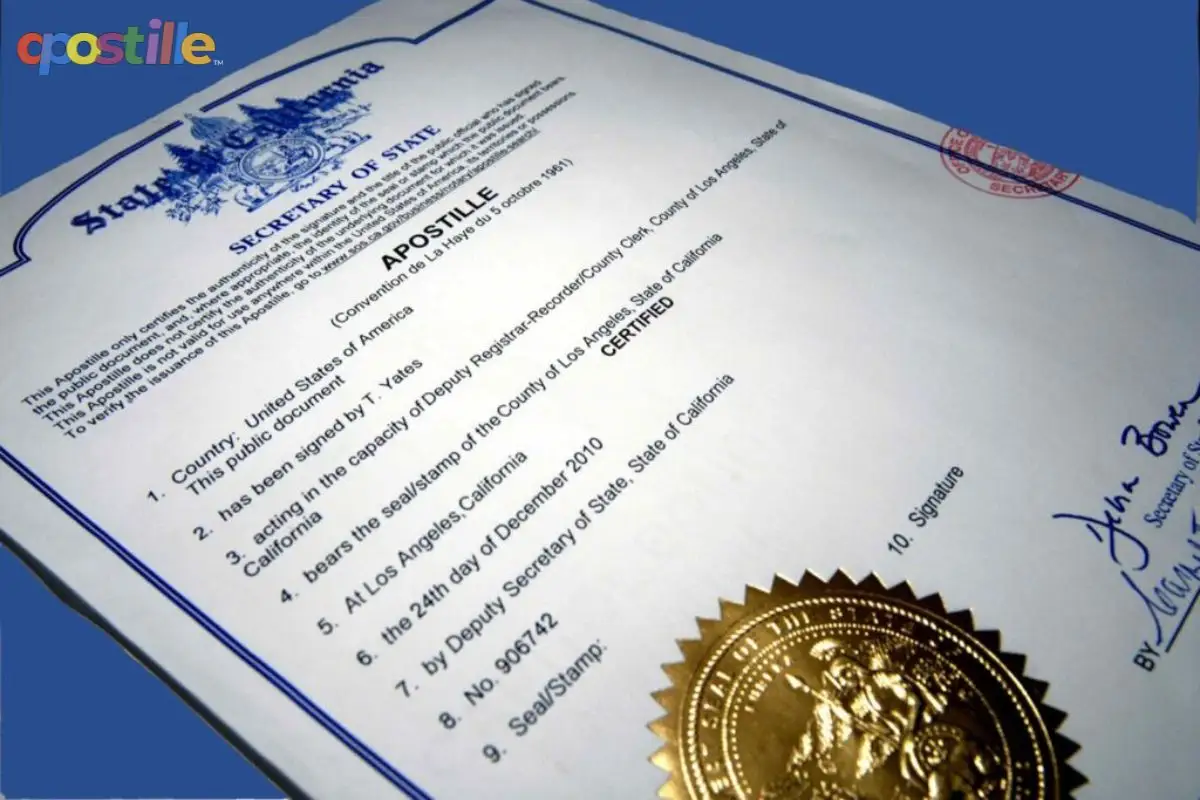Understanding the Significance of Apostille Accreditation and Why It Is Necessary for Lawful Records
In the realm of lawful documentation, the procedure of verifying and validating papers for worldwide usage is an essential element that can not be forgotten. Among the numerous devices offered for this function, apostille qualification stands apart as a streamlined and generally acknowledged technique. Understanding the intricacies and implications of apostille accreditation on legal documents is important for people and organizations involving in cross-border activities. This certification carries extensive value in ensuring the legitimacy and acceptance of essential paperwork beyond nationwide borders, yet just what does it entail, and why has it become important in today's globalized world?
The Meaning of Apostille Certification
Apostille certification is a specific form of authentication that validates the legitimacy of a legal paper for international use. This accreditation is important for making sure that files coming from one nation are identified as legitimate in another, streamlining the procedure of cross-border transactions, legal proceedings, or individual issues like marriage or adoption. The Hague Apostille Convention of 1961 developed the framework for this simplified qualification process amongst taking part countries.
To get an apostille qualification, the designated authority in the record's country of origin need to validate the paper's authenticity prior to affixing the apostille. As soon as affixed, the apostille ensures that the record will be approved as valid in any other country that is part of the Apostille Convention, without the demand for more qualification.
Benefits of Apostille for Legal Documents
The application of apostille certification streamlines the international recognition procedure for lawful records, using significant advantages in promoting cross-border involvements and legal rules. By affixing an apostille certification, the record becomes readily accepted in countries that are part of the Hague Apostille Convention, getting rid of the need for further verification.
In addition, apostille accreditation enhances the total performance of lawful procedures by streamlining the process of validating the legitimacy of a paper. Generally, the benefits of apostille qualification for legal records are crucial in advertising smoother international interactions and ensuring conformity with legal requirements throughout boundaries.
Apostille Vs. Legalization: Secret Differences
When identifying between the processes of apostille certification and legalisation for lawful files, it is crucial to recognize the key differences in their respective authentication methods. An apostille is a streamlined form of legalization that is approved amongst countries that are part of the Hague Apostille Convention.
This procedure can be much more expensive and taxing compared to obtaining an apostille. The option in between apostille accreditation and legalization depends see this website on the certain needs of the country where the paper will certainly be utilized.
Countries Accepting Apostille Accreditation

While the Hague Apostille Convention has actually considerably streamlined the procedure of cross-border record authentication, there are still countries that are not celebration to the convention - Houston TX Apostille. Therefore, documents predestined for these countries may need conventional legalization procedures through consulates or embassies. It is critical for services and people dealing with worldwide transactions to confirm the specific demands of the destination nation to make certain conformity with their lawful standards
Steps to Acquire Apostille for Records
To get an apostille for your documents, you need to start by check here determining the ideal providing authority in your nation. The issuing authority is generally the government department in charge of authenticating papers, such as the Secretary of State's workplace. As soon as you have determined the correct authority, the next action is to make certain that your record meets all the demands for apostille accreditation. These requirements commonly include having a signature from a recognized authorities, such as a notary public, and any essential supporting records.
After validating that your record satisfies the criteria, you will require to fill out an apostille application supplied by the releasing authority. This kind will call for details about the file being confirmed and the country where it will certainly be used. In addition to the completed application type, you will likely require to submit the initial record, a duplicate of your recognition, and any kind of appropriate charges.

Final Thought
To conclude, apostille accreditation plays a vital function in making sure the credibility and validity of legal documents for worldwide use (Houston TX Apostille). Understanding the relevance of apostille qualification is vital for organizations and people browsing the intricacies of lawful issues and cross-border purchases. By getting apostille certification, events can enhance the procedure of document verification and authentication, ultimately conserving time and resources in the global arena
To obtain an apostille certification, the marked authority in the document's look at here now nation of beginning need to validate the record's credibility before connecting the apostille. Once attached, the apostille makes sure that the paper will certainly be approved as valid in any other nation that is component of the Apostille Convention, without the need for further accreditation.
By connecting an apostille certification, the paper becomes readily accepted in countries that are part of the Hague Apostille Convention, eliminating the need for further verification.Differentiating in between apostille accreditation and legalization exposes the varying approval of these verification methods throughout various nations, with some nations specifically identifying and adhering to the apostille procedure. The apostille accreditation is commonly accepted amongst nations that are part of the Hague Apostille Convention, which currently has 118 participant states.